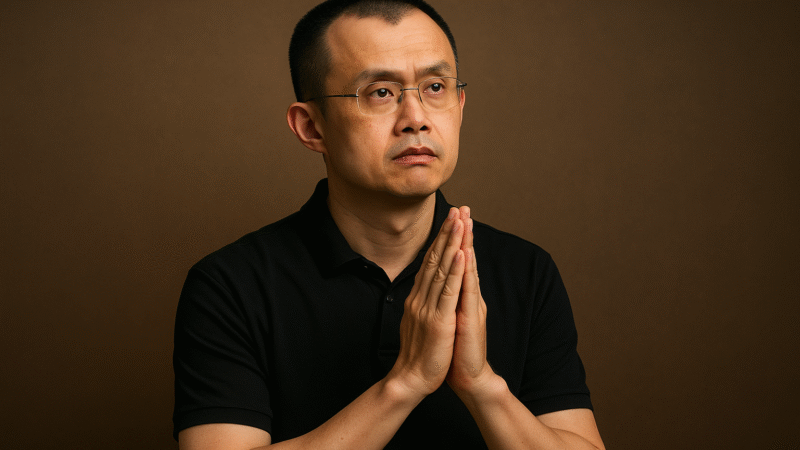A New Chapter: Fidji Simo Leads OpenAI’s Application Efforts
Introduction
Fidji Simo has been named the inaugural Chief Executive Officer of Applications at OpenAI—a newly created role tailored to translate cutting‑edge research into tools that meet the needs of billions of users. In a heartfelt note to staff, Simo declared that AI “will unlock more opportunities for more people than any other technology in history.” This announcement, published on July 21, 2025, underscores OpenAI’s evolving strategy to distinctly separate research, computing infrastructure, and application delivery—a triad that defines the organization’s current structure.
Prior to this new executive post, Simo led Instacart as CEO and served on its board. She also brings nearly a decade of experience from her tenure at Meta, where she oversaw product teams responsible for News Feed, Facebook Live, Watch, Marketplace, Ads, Video, Stories, and more—experiences that cemented her reputation as a results-driven, products-first tech leader. Her mission now is to spearhead the Applications unit—taking OpenAI’s research breakthroughs and shaping them into accessible, reliable, revenue-generating consumer and enterprise products.
From Silicon Valley To Industrial Leadership: Simo’s Formative Journey
Fidji Simo, born October 5, 1985, in Sète, France, rose from humble beginnings to become a key player in global technology industries. After earning a Master of Management from HEC Paris, she studied at UCLA Anderson before launching her career. She started at eBay in 2007, where she built local commerce and classifieds initiatives. In 2011, she joined Facebook as a product manager, eventually ascending to head of the Facebook app—an era marked by the scaling of the advertising business and introduction of video-driven social products.
In 2021, Simo joined Instacart’s board and later became its CEO, steering the company through its 2023 IPO and significantly expanding its business services and footprint. She also co-founded the Metrodora Institute in 2023, focusing on complex chronic illness research and treatment—another testament to her personal experiences with healthcare fragmentation.
These cumulative achievements positioned Simo as the ideal person to lead OpenAI’s charge in creating practical, impactful AI applications that reflect her holistic approach to empowerment.
Defining A Vision: AI As The “Greatest Opportunity Engine”
In her internal memo and blog post, Simo defined six life pillars—knowledge, health, creative expression, economic freedom, time, and support—as areas where AI can meaningfully scale and equalize access. She emphasized the importance of intentionality in development, stating that AI could either redistribute power widely or exacerbate existing disparities.
Simo’s optimism is tempered with pragmatism: progress won’t happen automatically. Her roadmap insists on disciplined, ethical approaches to integration across domains that directly impact daily lives and global equity.
1. Knowledge: Personalized Tutoring at Scale
One of the most compelling benefits Simo envisions is AI-based tutoring. OpenAI data indicates students using AI tutors learn twice as much as those guided by human tutors, and user surveys report that most people say ChatGPT simplifies complex concepts. These findings underpin Simo’s belief that personalized educational AI can bridge significant opportunity gaps by making high-level expertise ubiquitously accessible.
2. Health: Decentralizing Medical Knowledge
Simo’s passion for healthcare stems from her own battle with chronic illness, during which she assembled fragmented care from multiple specialists. Nearly 90 percent of U.S. adults struggle to interpret health data, contributing to hundreds of billions annually in unnecessary expenditures.
She envisions AI platforms capable of consolidating medical information, assisting patients in understanding their health through clear, personalized explanations, thereby leveling the playing field for under-resourced patients.
3. Creative Expression: Democratising Innovation
At Facebook, Simo witnessed firsthand the transformative power of enabling user-generated content—from Facebook Live to Watch. At OpenAI, she expects AI to amplify creativity by providing tools for artistic expression without requiring specialized skill. Whether crafting video, music, or writing, AI agents can become collaborators, catalyzing creativity for novices and professionals alike.
4. Economic Freedom: Empowering Entrepreneurs
In a piece for a business publication, Simo highlighted AI’s role in empowering everyday entrepreneurs, a shift she likens to Instacart’s transformation of grocery delivery. With AI, individuals can design, prototype, market, and launch products—such as a child building a weekend website—without prior technical training. Although automation may eliminate some roles, it will also create new job categories, underscoring the need for workforce training.
5. Time: Restoring Human Agency
Time-saving was a transformative value driver at Instacart, and Simo sees AI extending that vision. Whether automating mundane tasks or supporting decision-making, AI tools can free people to focus on more meaningful aspects of life—supporting creativity, family, or personal growth.
6. Support: Emotional Coaching and Companionship
Simo hints at emotionally aware AI assistants—digital confidants that go beyond task completion to emotional support. She references “Katia in your pocket,” alluding to deeply personalized coaching that mimics human-level empathy and guidance. Speculation about OpenAI hardware, possibly wearable, fueled further intrigue.
Institutional Implications: Structure, Strategy, And Scalability
OpenAI founder Sam Altman reaffirmed the organization’s three-pronged structure—Research, Compute, Applications—with Simo leading the Applications pillar. This strategic realignment reflects a sharpened focus on productization, scaling, and monetization of AI capabilities.
Under Simo, OpenAI will intensify efforts to commercialize flagship products such as ChatGPT, APIs, and enterprise tools, expand business partnerships, and explore regulated sectors like healthcare and education. Several narratives underline this shift:
OpenAI partnered with Oracle and SoftBank to build the Stargate AI computing infrastructure, committing to build up to ten gigawatts of data center capacity. Simo’s transition—launching August 18, 2025—arrives amid organizational restructuring that consolidated business and operations functions within the Applications division, to revive consumer engagement and position OpenAI competitively against giants like Meta and Google.
A Leader Poised For Impact: Simo’s Credibility And Capability
Few executive appointments have combined design expertise, scalable product leadership, and medical advocacy as seamlessly as Simo. She exemplifies a pragmatic technologist who values both impact and inclusion—and whose appointment signals OpenAI’s intent to weave these qualities into its applications.
Her collaborative leadership style is mirrored in her emphasis on equitable deployment and workforce transformation. With board experience at Shopify and OpenAI, and allyship with stakeholders—from enterprise to underserved audiences—she is uniquely placed to guide OpenAI through its next chapter.
The Road Ahead: Challenges And Opportunities
The path ahead is laden with both promise and responsibility.
Product development must scale solutions for personalized tutoring, medical guidance, and emotional support while ensuring deep domain expertise, regulated compliance, and user trust.
Ethical stewardship is non-negotiable. AI design must avoid reinforcing inequality. Deployment must be shaped by bias mitigation, privacy safeguards, and inclusivity.
Infrastructure coordination remains essential. Applications must be supported by robust compute and research frameworks, as seen in the Stargate expansion with Oracle and SoftBank.
Commercial viability must accompany mission-driven goals. Simo must balance social impact with revenue generation through partnerships, subscriptions, and APIs—ensuring financial sustainability.
Conclusion
Fidji Simo’s appointment as CEO of Applications at OpenAI embodies a pivotal moment—not just organizationally, but philosophically. From her first memo, AI emerges as a transformative catalyst—one capable of empowering individuals, expanding access to knowledge, health, creativity, and economic opportunity, and restoring time and emotional support.
Her leadership signals that OpenAI is entering an era where scale, gravity, and responsibility converge. The shift from research to impact asks not only what AI can do—but how and for whom it can do it. And with Simo directing the Applications business, OpenAI is making a powerful statement: that the future of AI hinges not just on innovation—but on empathy, execution, and equitable design.



